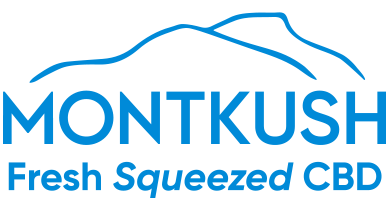

Table of Contents
If you’ve ever found yourself wondering about the differences between CBD and Delta-8 THC, you’re not alone. With the explosion of cannabinoid products in the wellness and recreational markets, it’s easy to get lost in the jargon. But fear not—this article is your ultimate guide to understanding these two popular compounds. Whether you’re curious about the psychoactive effects, legal nuances, or therapeutic benefits of CBD and Delta-8 THC, we’ll break it all down in simple, approachable terms.
So, why should you care? Knowing the key distinctions can help you make informed decisions about what products are right for your needs, whether it’s Delta-8 THC gummies for relaxation or CBD oil for managing chronic pain. Let’s dive in.
Key Takeaways
CBD is non-intoxicating and widely used for its therapeutic benefits.
Delta-8 THC offers a milder psychoactive experience compared to Delta-9 THC.
Both compounds are derived from the hemp plant, but their effects and legal statuses differ.
Always verify the legal status of Delta-8 THC in your state.
Choose products tested for safety and purity to ensure a positive experience.
What Is CBD, and Why Is It So Popular?
CBD, short for cannabidiol, is a non-intoxicating compound found in the hemp plant, a variety of the cannabis plant. Unlike Delta-8 THC, CBD is non-psychoactive, meaning it won’t make you feel "high." Instead, it’s celebrated for its potential therapeutic benefits, such as reducing chronic pain, anxiety, and inflammation.
One reason for CBD’s popularity is its versatility. You’ll find CBD products in nearly every form imaginable, from oils and tinctures to skincare products and beverages. Because it’s easy to incorporate into daily routines, consumers often view CBD as an accessible way to explore the cannabis plant’s therapeutic potential without worrying about intoxicating effects.
What Is Delta-8 THC, and How Is It Different from CBD?
Delta-8 THC, or Delta-8 tetrahydrocannabinol, is another naturally occurring compound in the cannabis plant. However, it’s chemically distinct from CBD and produces psychoactive effects, though they are less potent than those of Delta-9 THC, the primary compound responsible for the "high" in marijuana.
Another key distinction is the way Delta-8 THC interacts with the body’s endocannabinoid system. While CBD works indirectly to regulate cannabinoid receptors, Delta-8 THC binds more directly to CB1 receptors, creating effects such as mild euphoria, a calming sensation, and even appetite stimulation. This makes Delta-8 THC products appealing to those seeking an alternative to Delta-9 THC with a lower risk of overstimulation.
CBD vs. Delta-8 THC: What’s the Difference?

The main difference between CBD and Delta-8 THC lies in their psychoactive effects . While CBD is non-psychoactive , Delta-8 THC produces a mild "high." Additionally, their legal statuses differ—CBD is widely approved by the FDA for limited medical uses, while Delta-8 THC products exist in a gray area.
Another major difference is how they are used. CBD is commonly incorporated into wellness routines for its calming and anti-inflammatory properties, while Delta-8 THC is often chosen for its recreational effects and its ability to bridge the gap between CBD and Delta-9 THC . Understanding these distinctions can help you determine which compound best suits your specific needs.
The main difference between CBD and Delta-8 THC lies in their psychoactive effects . While CBD is non-psychoactive , Delta-8 THC produces a mild "high." Additionally, their legal statuses differ—CBD is widely approved by the FDA for limited medical uses, while Delta-8 THC products exist in a gray area.
Another major difference is how they are used. CBD is commonly incorporated into wellness routines for its calming and anti-inflammatory properties, while Delta-8 THC is often chosen for its recreational effects and its ability to bridge the gap between CBD and Delta-9 THC . Understanding these distinctions can help you determine which compound best suits your specific needs.
Psychotropic Effects
CBD , as mentioned earlier, is not psychoactive and will not intoxicate you. It is often used in cannabidiol formulations for its calming and anti-inflammatory properties. On the other hand, Delta-8 THC is mildly psychoactive , producing effects similar to Delta-9 THC , though to a lesser degree.
The level of psychoactivity in Delta-8 THC also depends on dosage and individual tolerance. Some users report feeling more relaxed and clear-headed compared to the stronger "high" associated with Delta-9 THC , making it a popular choice for those who want a subtle experience without feeling overwhelmed.
Therapeutic Benefits
Both CBD and Delta-8 THC have been touted for their therapeutic benefits, though their applications differ:
CBD: Known for its anti-inflammatory and anxiolytic properties, CBD products are popular for managing chronic pain, anxiety, and insomnia.
Delta-8 THC: Often used for relaxation, appetite stimulation, and pain relief, Delta-8 THC products are gaining traction as an alternative to traditional marijuana.
Emerging research also suggests that these compounds may have synergistic effects when used together. For instance, combining CBD and Delta-8 THC may amplify their benefits, such as enhancing relaxation or providing more effective pain relief without the stronger intoxicating effects of Delta-9 THC.
Side Effects
While both CBD and Delta-8 THC are generally well-tolerated, they can still cause potential side effects that users should be aware of:
CBD
Fatigue: Some users report feeling overly tired or drowsy, especially at higher doses.
Diarrhea: Digestive upset may occur, particularly when consuming CBD oil or edibles.
Changes in Appetite: CBD can either suppress or stimulate appetite, depending on the individual.
Dry Mouth: A less common but possible side effect, often mitigated by staying hydrated.
Potential Drug Interactions: CBD may interact with medications, so consulting a healthcare provider is important.
Delta-8 THC
Dizziness: Mild vertigo or lightheadedness can occur, especially for first-time users or when taking higher doses.
Dry Mouth: A frequent side effect similar to Delta-9 THC, often referred to as "cottonmouth."
Mild Euphoria: While not necessarily negative, the psychoactive effects can be distracting or impair alertness.
Increased Heart Rate: Some users may experience a temporary increase in heart rate.
Anxiety: In rare cases, Delta-8 THC can trigger feelings of unease or paranoia, especially in sensitive individuals.
The severity and likelihood of side effects often depend on factors such as dosage, product quality, and individual tolerance levels. For this reason, it’s crucial to start with a low dose, especially for Delta-8 THC, and gradually increase if needed.
Legal Status
Thanks to the 2018 Farm Bill, CBD derived from hemp plants with less than 0.3% THC is federally legal. Delta-8 THC, however, occupies a murkier space. While it’s technically derived from hemp, its psychoactive nature has drawn scrutiny, with several states banning its sale outright. Always check if Delta-8 THC is legal in your state before purchasing.
As the legal landscape continues to evolve, consumers must stay informed about federal and state regulations. It’s also worth noting that while CBD is more widely accepted, the FDA has only approved one specific CBD product (Epidiolex) for treating epilepsy, highlighting the need for more research and regulation in the cannabinoid industry.
CBD vs. Delta-8 THC for Anxiety

Let’s talk about anxiety—something we all deal with from time to time. CBD has quickly become the go-to natural remedy for calming those nerves.
Why? It works with your body’s endocannabinoid system (fancy term, but stay with me), helping to regulate how you respond to stress.
People love CBD oil and tinctures for tackling everything from generalized anxiety to social jitters and even the occasional panic attack. Plus, you get all the calm without zoning out because it's non-psychoactive. Oh, and it also has a little magic with serotonin receptors, which are like mood controllers for your brain. Pretty cool, right?
Now, if CBD is your calm buddy, Delta-8 THC is like that friend who hands you a cozy blanket and says, "Let’s relax." It’s mildly psychoactive, meaning you’ll feel a bit of euphoria—just enough to help you unwind but not enough to lose focus. This makes it great for quick stress relief or a rough day.
That said, if you’re sensitive to THC, the "high" might feel like too much, so it’s best to try Delta-8 THC when you’re not juggling a busy schedule. It’s convenient for evenings when you can kick back without worrying about your to-do list.
Which should you choose? If you’re looking for a zen-like calm with zero psychoactive effects, CBD is your MVP. But if you’re after deeper relaxation or need something to take the edge off a really tough day, give Delta-8 THC a shot.
CBD vs. Delta-8 THC for Pain Relief
Let’s face it—pain sucks. Whether it’s a stiff back or full-on chronic pain, CBD has earned its stripes as a pain reliever. Its secret? CBD reduces inflammation by working with your body’s cannabinoid receptors—basically the little messengers that tell your brain, "Hey, this hurts."
The best part? CBD is non-psychoactive, so you can go about your day without feeling out of it. From CBD oil to creams and gummies, people swear by it for managing arthritis, sore muscles, and those random aches that come with being a human.
Now, for more stubborn pain, Delta-8 THC might be the hero you didn’t know you needed. It’s like CBD, but with a little extra muscle.
Thanks to its stronger interaction with CB1 receptors in the brain, Delta-8 THC not only eases pain but also brings a mild, soothing euphoria. It’s a double whammy: less pain and more relaxation. Think nerve pain, severe muscle tension, or just that end-of-day, "I need to decompress" vibe.
While it’s not as potent as Delta-9 THC, it offers enough relief without feeling overwhelming.
Which should you choose? For mild to moderate pain where you still need to function, stick with CBD. But if your pain needs an extra push—and a side of relaxation—Delta-8 THC might be your new best friend.
Delta-8 THC vs. CBD for Sleep
Ah, sleep. The holy grail of feeling human. If you’re tossing and turning, CBD is a fantastic starting point. It helps quiet your overthinking brain (you know, that voice listing all the things you didn’t do today) and sets the stage for restful sleep.
The best part? You wake up refreshed because CBD doesn’t leave you groggy or drowsy. Many people swear by CBD oil or capsules about an hour before bed to ease into a natural, uninterrupted sleep cycle. Plus, since it’s non-intoxicating, it’s safe for nightly use without any "hangover" effect.
For those nights when nothing seems to work, Delta-8 THC can be your secret weapon. Its mildly psychoactive effects help your mind and body relax to the point where sleep comes effortlessly. Whether you’re battling chronic insomnia or need something stronger to unwind after a hectic day, Delta-8 THC products, like gummies, can deliver that deep, "out like a light" kind of rest.
Just a heads-up—its euphoric effects might not be everyone’s cup of tea, especially if you’re new to THC products. Start small and see how it works for you.
Which should you choose? For a gentle nudge toward better sleep, go with CBD. But if you’re staring at the ceiling after hours of counting sheep, Delta-8 THC might be the sleep aid you’ve been waiting for.
Which One Should You Choose: CBD or Delta-8?
Deciding between CBD and Delta-8 THC isn’t about picking one over the other—it’s about what fits your needs best. Here’s the gist:
If you’re looking for relief from chronic pain or anxiety without any psychoactive effects, CBD is your steady, dependable option. It’s also a great choice if you need to stay sharp and functional throughout the day.
On the flip side, Delta-8 THC offers a bit more for those moments when you want to kick back and relax. Its mild euphoria and deeper relaxation make it ideal for unwinding after a tough day or dealing with stubborn pain.
Keep in mind: CBD is more widely accepted and available, while Delta-8 THC exists in a legal gray area, depending on where you live. If you’re new to cannabinoids, starting with CBD may feel less intimidating, but if you’re curious about the gentle "high" that comes with Delta-8 THC, it’s worth exploring in a safe, comfortable environment.
Ultimately, it’s okay to mix and match. You might find that CBD helps you stay calm and focused during the day, while Delta-8 THC is the perfect way to wind down at night. Just be sure to choose products from reputable brands and consult a healthcare professional if you’re unsure which option aligns with your health goals.
FAQs
What is the difference between CBD and Delta-8?
The primary difference between CBD and Delta-8 lies in their chemical structure and effects. CBD , or cannabidiol , is a non-psychoactive compound found in the cannabis plant that does not produce a "high." In contrast, Delta-8 THC , or delta-8 tetrahydrocannabinol , is a psychoactive cannabinoid that can produce mild intoxicating effects, although it is considered less potent than Delta-9 THC . Both compounds interact with the body’s endocannabinoid system but do so in different ways.
Is Delta-8 legal?
The legality of Delta-8 is somewhat complex. Under the 2018 Farm Bill , hemp and its derivatives, including Delta-8 products, are legal as long as they contain less than 0.3 percent Delta-9 THC . However, some states have moved to specifically regulate or ban Delta-8 products, so it’s essential to check local laws before purchasing or using Delta-8 products.
Can you get high from Delta-8?
Delta-8 can produce mild psychoactive effects, making it intoxicating to some degree. Users often report a more clear-headed high compared to Delta-9 THC , which can lead to feelings of relaxation and euphoria without the anxiety or paranoia that sometimes accompanies Delta-9 THC consumption. However, the effects can vary significantly based on the individual and the dosage consumed.
What are the therapeutic benefits of CBD compared to Delta-8?
CBD is widely recognized for its therapeutic benefits, including relief from chronic pain, anxiety, and inflammation without the intoxicating effects associated with Delta-8 or Delta-9 THC . Research is still ongoing regarding the specific benefits of Delta-8 , but some users report similar therapeutic effects, such as pain relief and anxiety reduction, albeit with a milder psychoactive experience.



